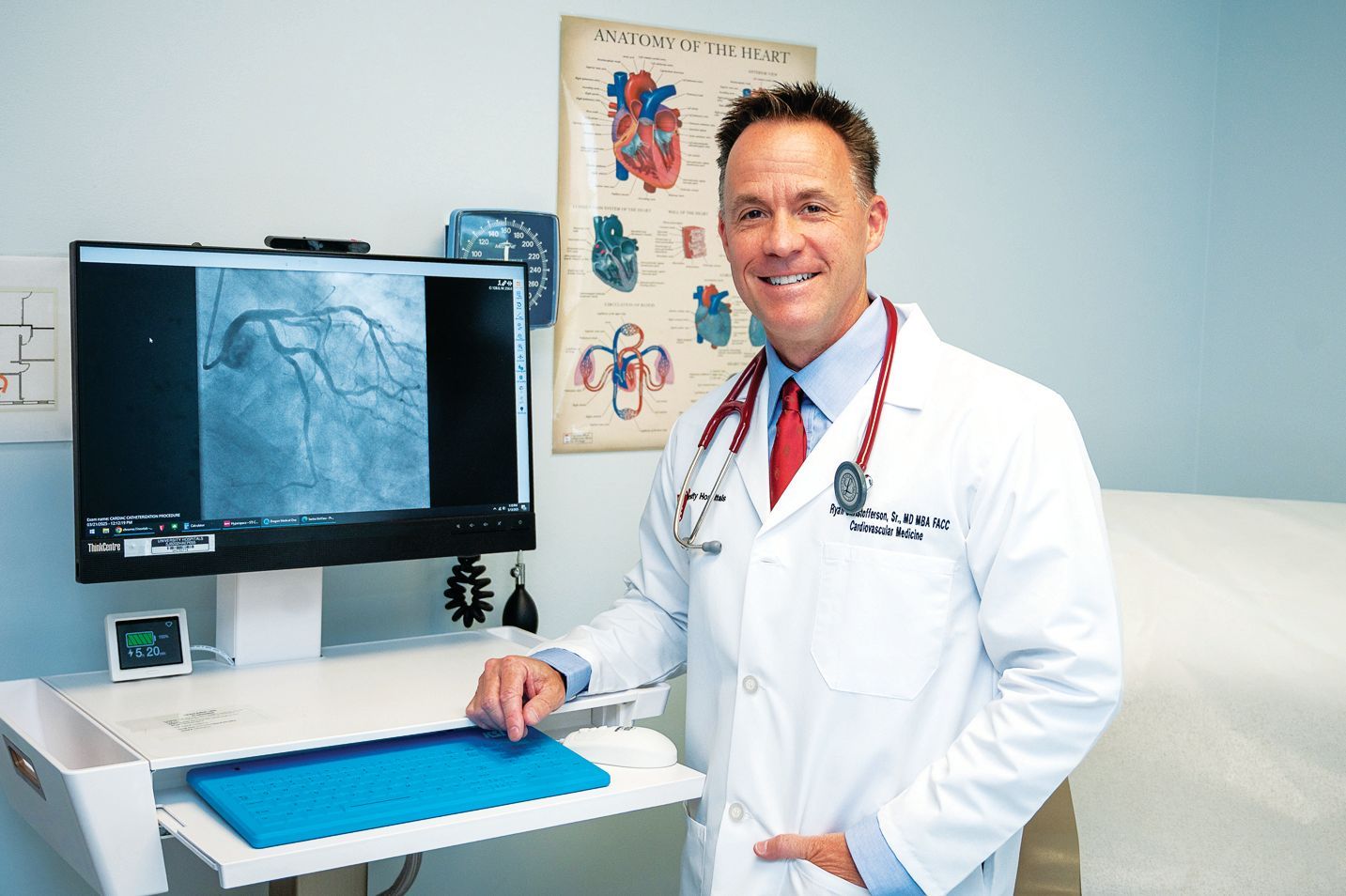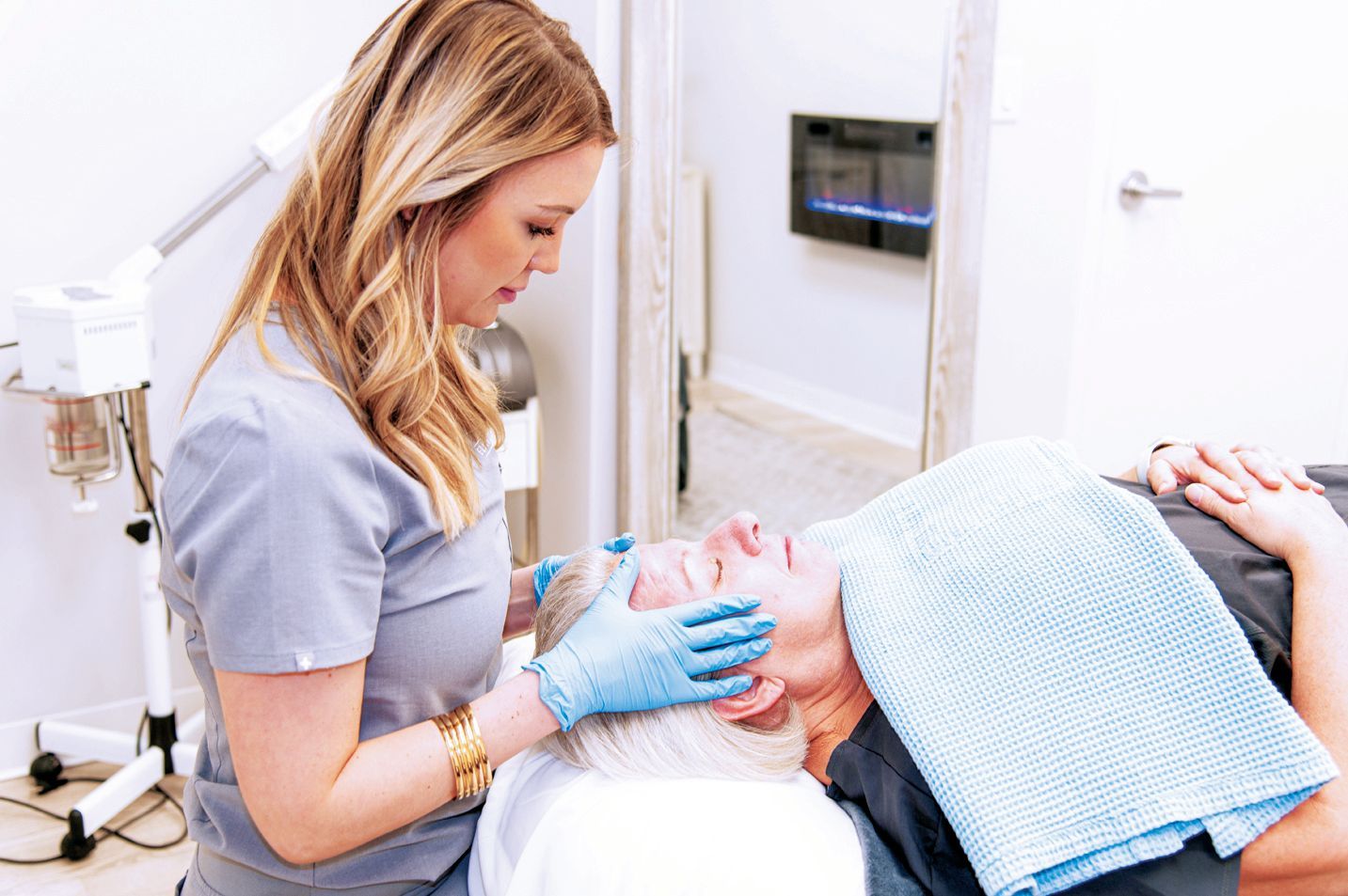UH St. John has heart
University Hospitals Harrington Heart & Vascular Institute at UH St. John Medical Center offers basic to complex treatment for heart and vascular issues, so your care can happen close to home.

Patients find the same level of expertise and state-of-the-art equipment at UH St. John Medical Center as they do at University Hospitals’ downtown campus, but in convenience of a community hospital setting.(Photograph: Adrienne Rose)
Interventional cardiologists meet you where you’re at on your medical journey. They can be on the front lines during emergencies, inserting a stent to open a blocked artery for a patient having a heart attack. More often they are managing chronic conditions to help patients prevent heart attacks.
A subspecialty of cardiology that requires additional fellowship training, interventional cardiologists use specialized, catheter-based techniques to diagnose and treat coronary artery disease.
Instead of traditional surgery, these specialists provide a non-surgical way to diagnose and treat heart and blood vessel conditions. Catheter-based tools allow the physician to inject dye into the blood vessels for X-ray imaging to visualize blockages or other abnormalities, to place stents to open narrowed or blocked coronary arteries, as well as other interventions such as atrial fibrillation treatment.
University Hospitals Harrington Heart & Vascular Institute at UH St. John Medical Center in Westlake offers these advanced technologies for screening and diagnosing heart and vascular disease, with the goal of catching conditions early and saving the lives of patients.
“While about 20 percent of my work is responding to emergencies, the majority of treatments are performed in the cath lab during scheduled procedures as part of chronic management or preventative treatments,” says Ryan D. Christofferson, MD, MBA, FACC, interventional cardiologist at University Hospitals Harrington Heart & Vascular Institute and director of interventional cardiology services at UH St. John Medical Center. He grew up in the mountains of Salt Lake City, Utah, before moving to the shores of Lake Erie.
“If you have risk factors and symptoms of coronary heart disease, you should be evaluated,” says Dr. Christofferson, who has performed hundreds of routine and complex percutaneous coronary interventions, including STEMI, peripheral vascular and carotid procedures. “If you’re experiencing chest pain or tightness, especially with exertion, or shortness of breath, those can be signs of coronary artery disease. Risk factors include strong family history, hypertension, hyperlipidemia, diabetes and smoking.”
UH St. John Medical Center is investing in a new cardiac catheterization lab enhancement currently under construction. The hospital also has advanced technology, including cardiac support devices such as Impella, an in-heart pump to assist heart function during an emergency.
Patients find the same level of expertise and state-of-the-art equipment at the Westlake-based hospital as they find at University Hospitals’ downtown campus, in the convenience of a community hospital setting, so they can get the highest quality care when they need it.
“When having a heart attack, time is muscle. Stabilizing the patient on-site and in the moment saves lives,” Dr. Christofferson says.
UH St. John Medical Center is located at 29000 Center Ridge Road in Westlake. For an appointment, call 216-844-3800 or visit UHhospitals.org/StJohnHeart.
Are You at Risk?
As part of its heart and vascular services and community outreach, University Hospitals Harrington Heart & Vascular Institute at UH St. John Medical Center offers a free Coronary Artery Calcium Score Test that can help predict your risk for heart attack. Performed during a 30-minute appointment, the CT scan measures the amount of calcium buildup in the coronary arteries. The presence of calcium in the arteries is a marker of coronary artery disease—the most common cause of heart attacks.
“I consult with patients who have an elevated calcium score to help them lessen their risk,” Dr. Ryan Christofferson says. “The goal is to prevent any potential future cardiac episodes.”
Who Should Have a Calcium Score Test?
Men and women ages 45 or older with no history of coronary artery disease and with one or more risk factors, including:
- High blood cholesterol
- Low HDL cholesterol (“good” cholesterol)
- High blood pressure
- Cigarette smoking
- Type 2 diabetes
- Chronic inflammatory condition
- Early menopause
- Chronic kidney disease
- Family history of heart disease
Though this is a no-cost, a doctor’s order is required. Learn more at UHHospitals.org/calciumscore.
Recent Posts
RELATED ARTICLES











